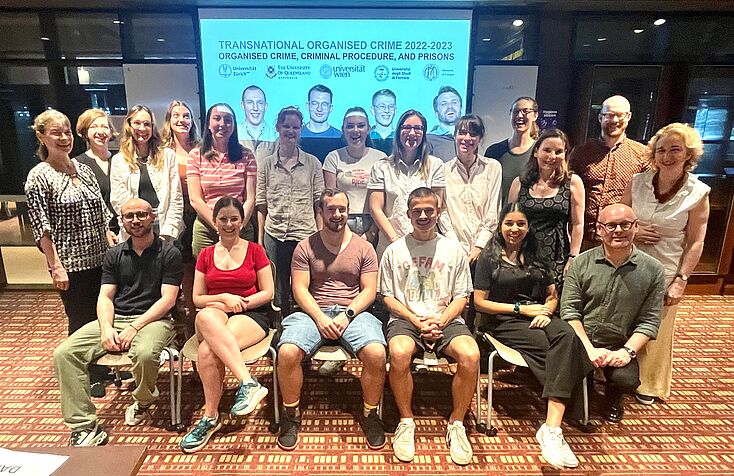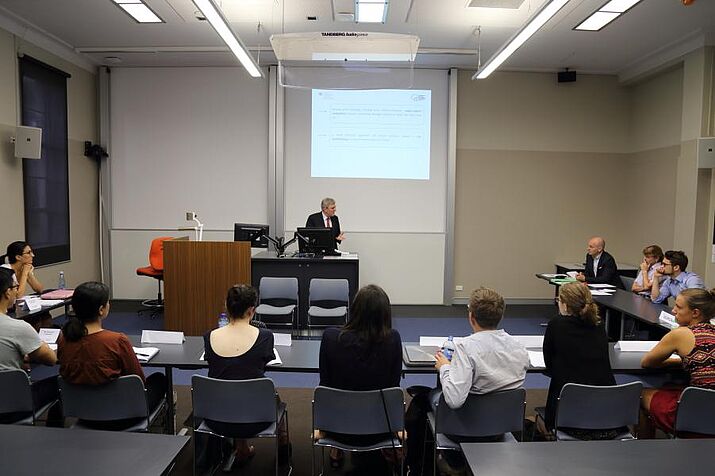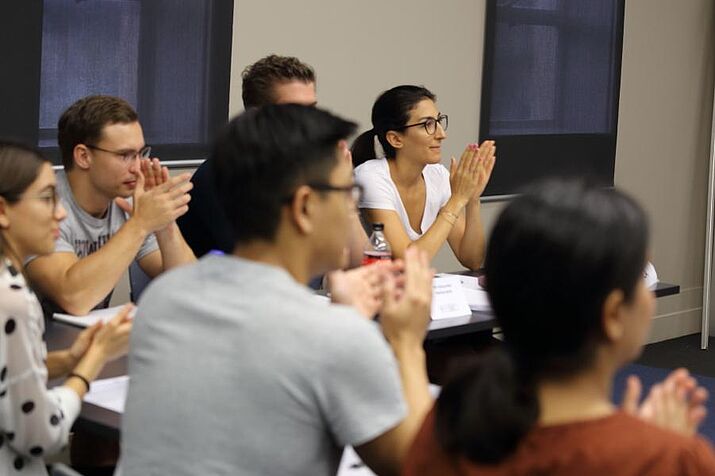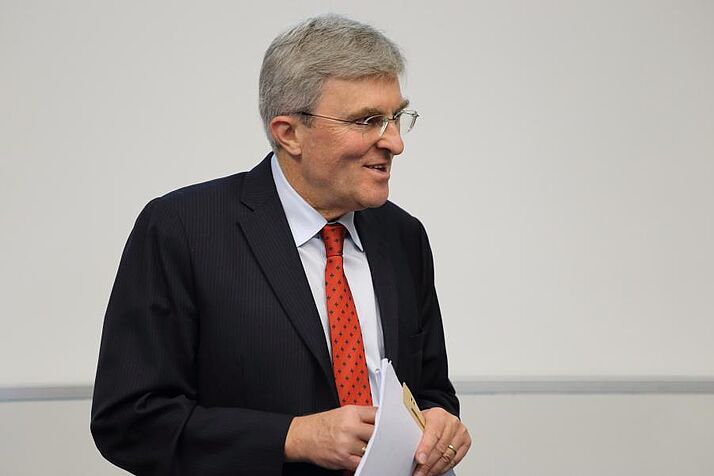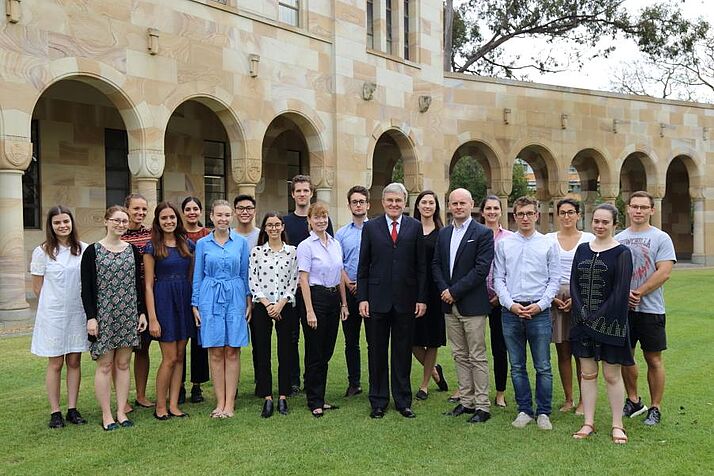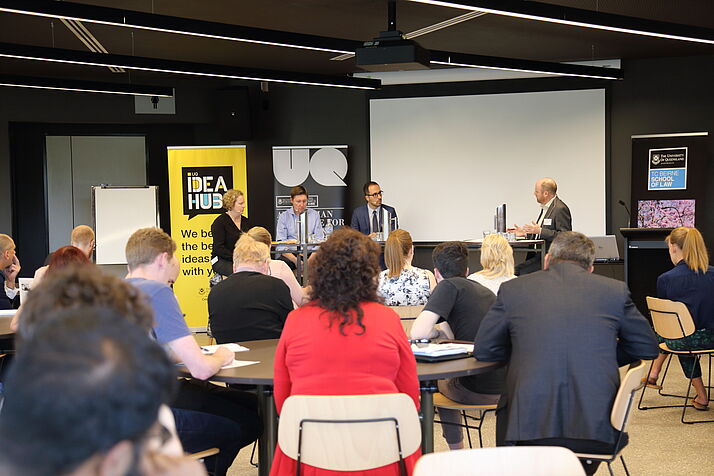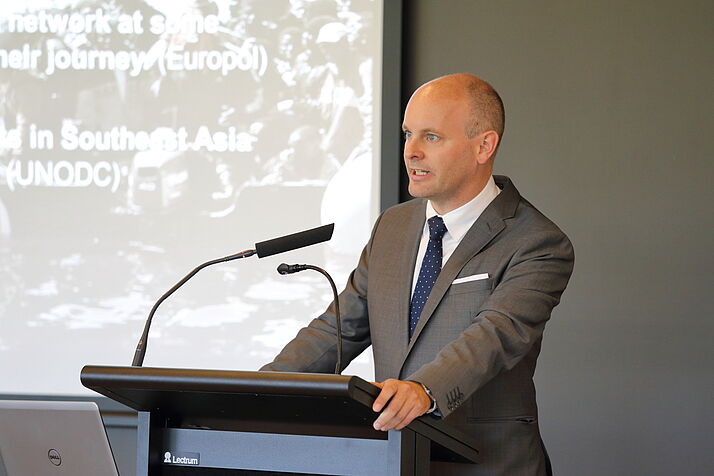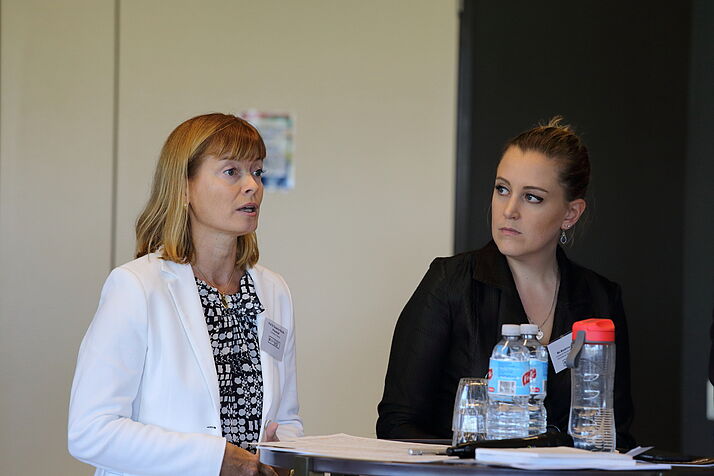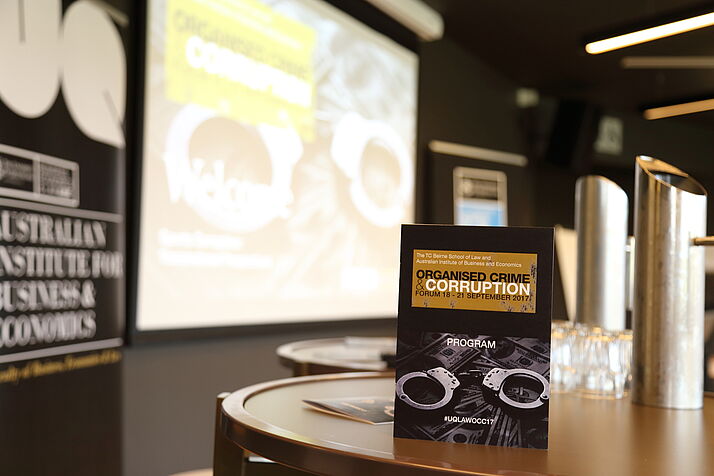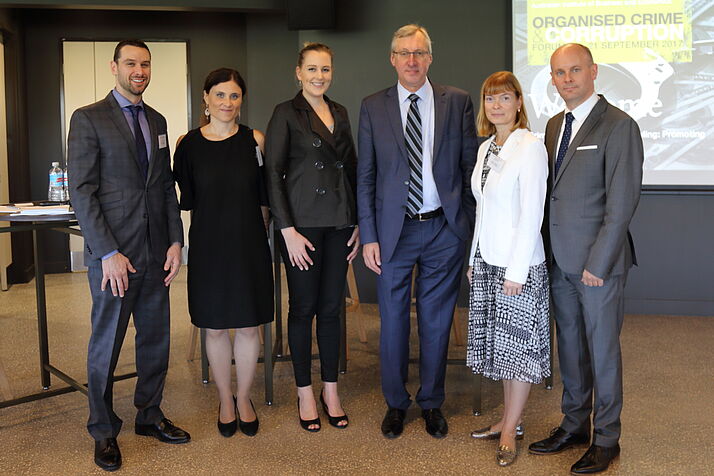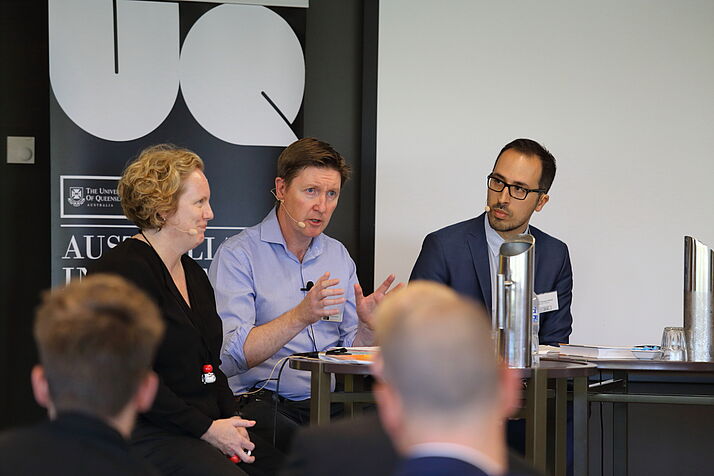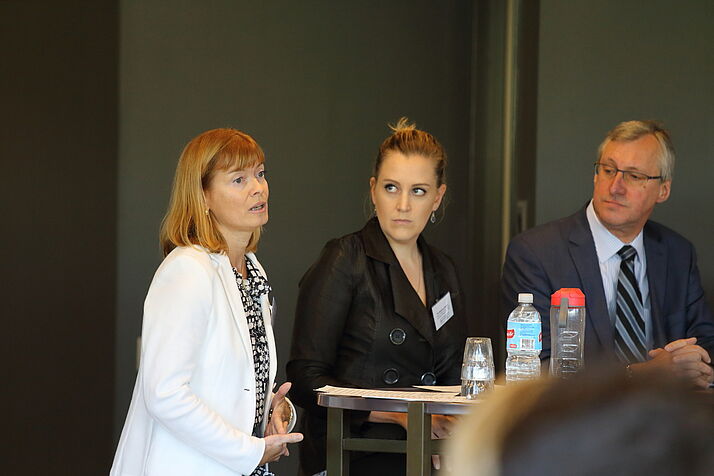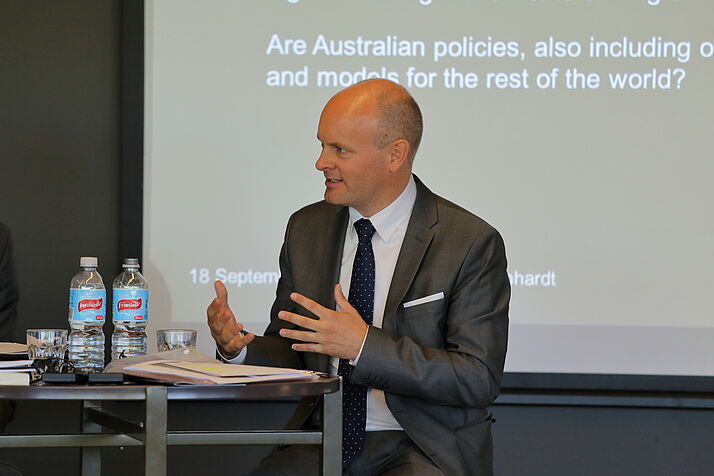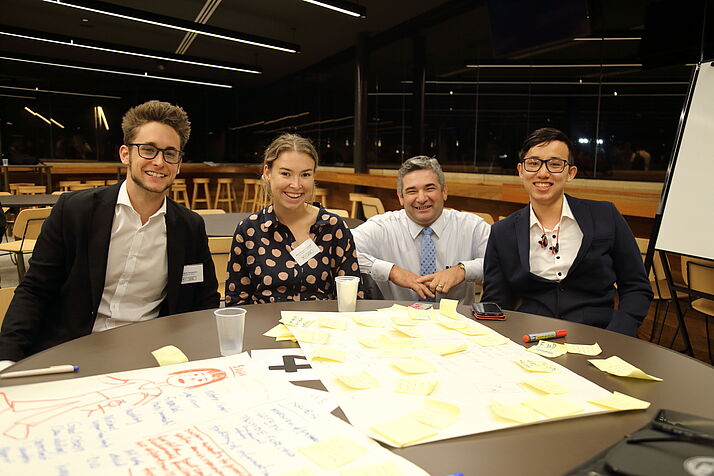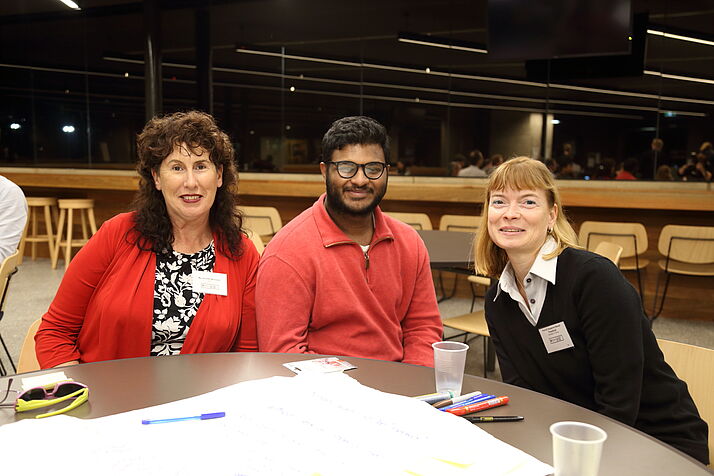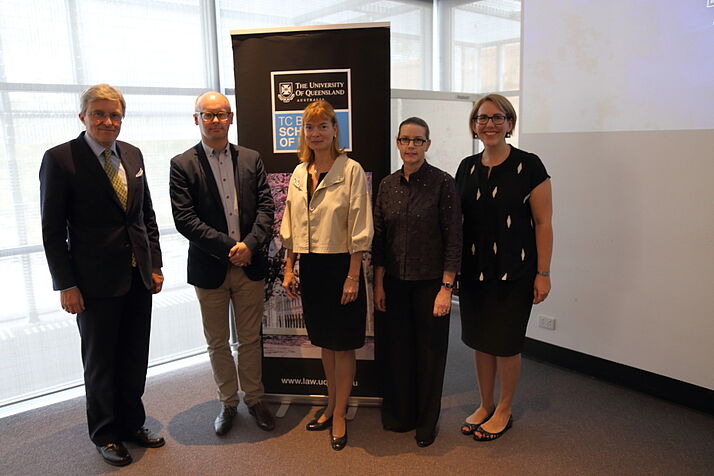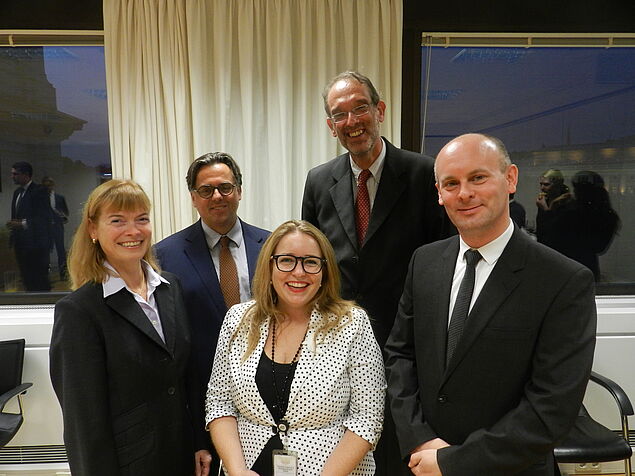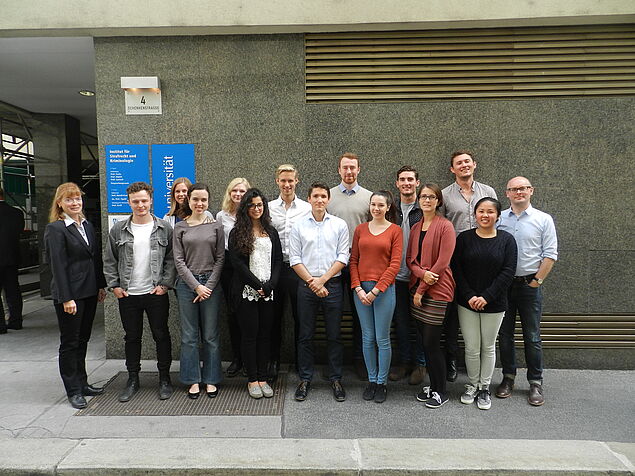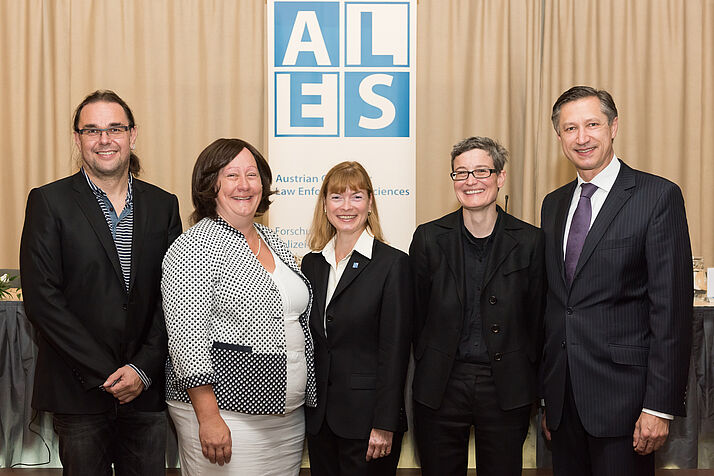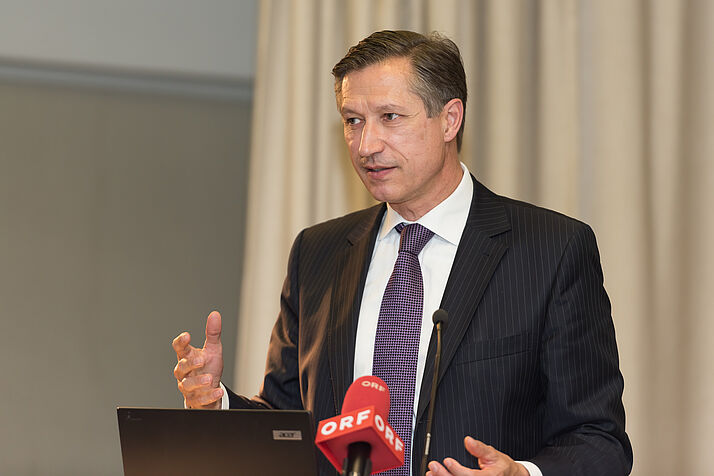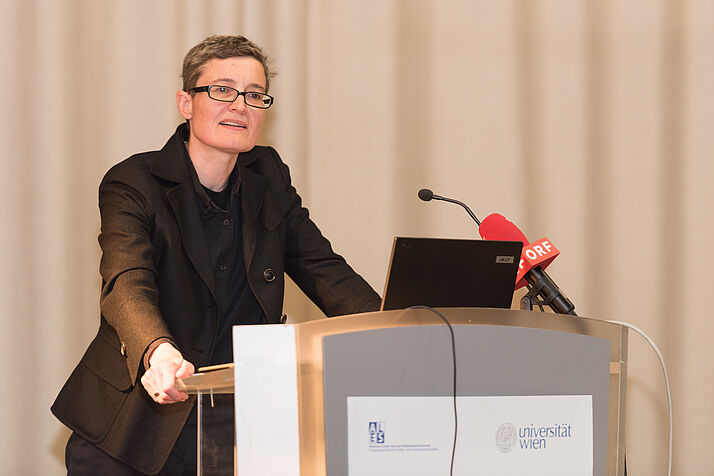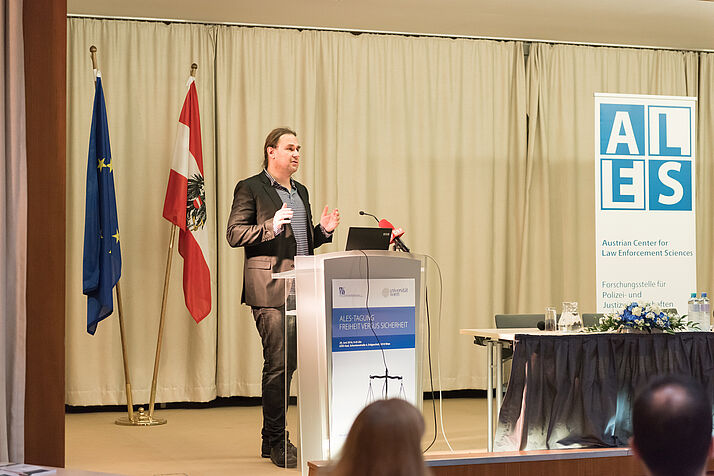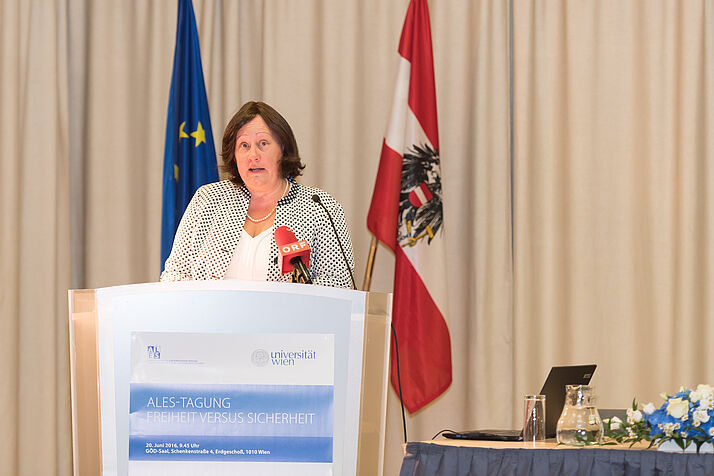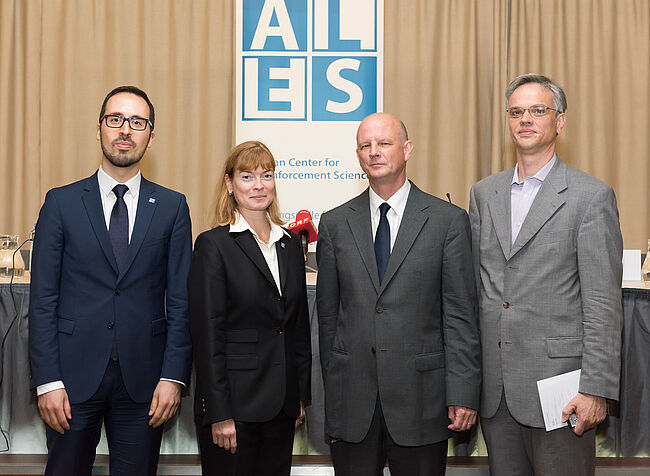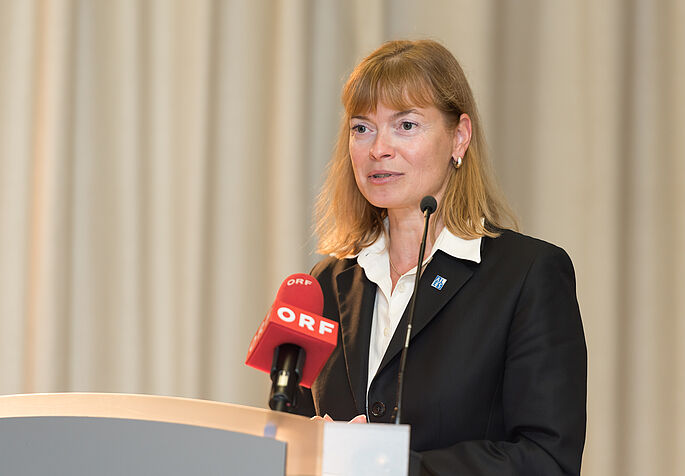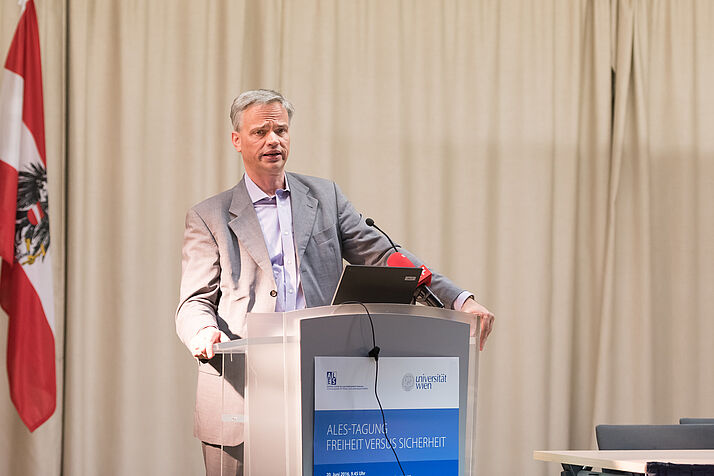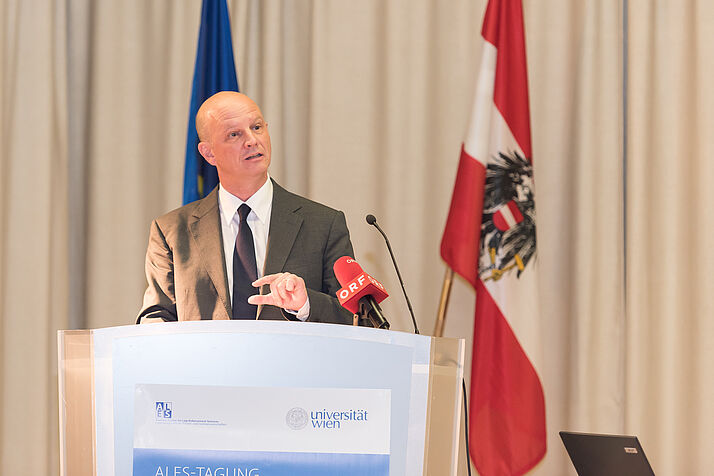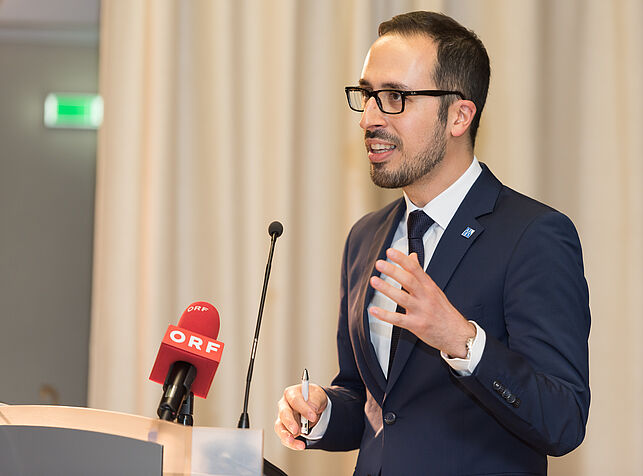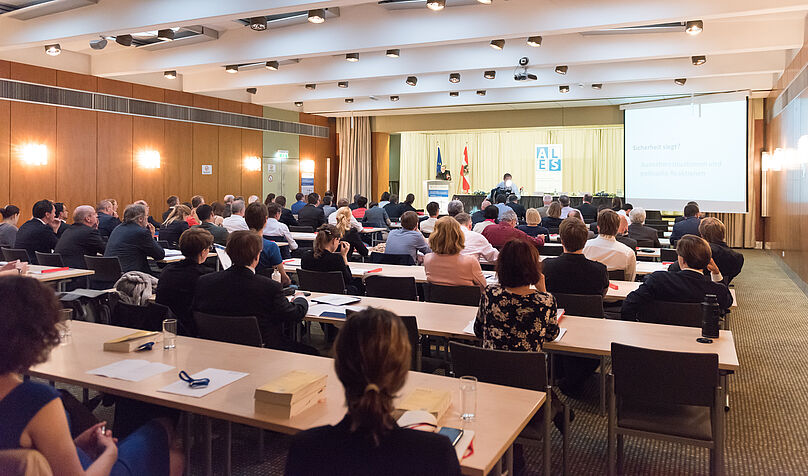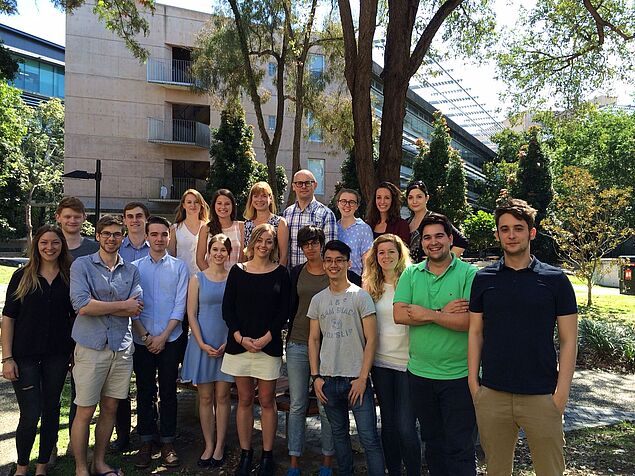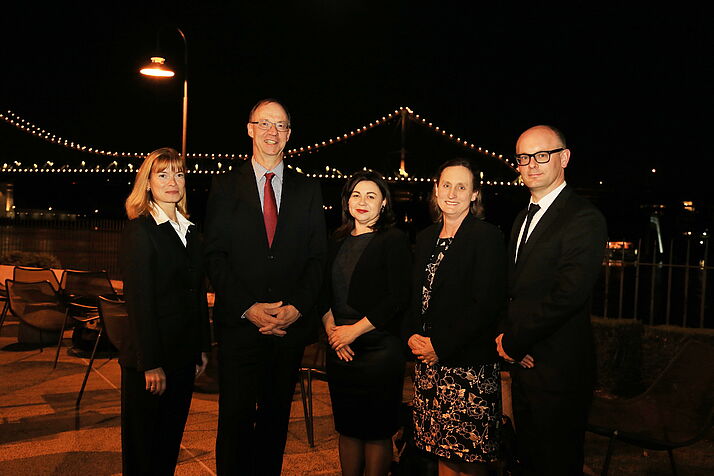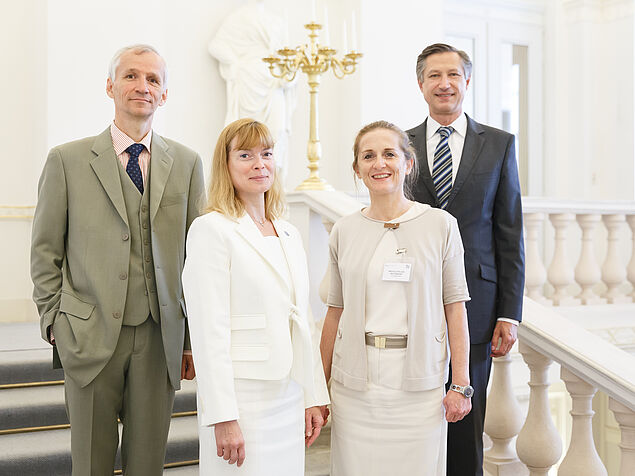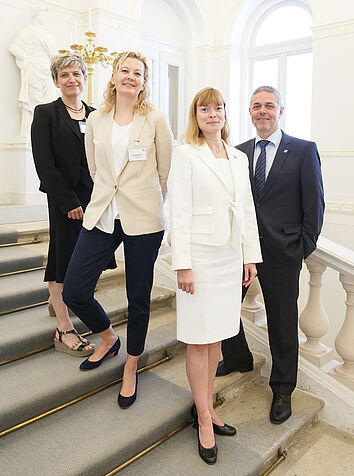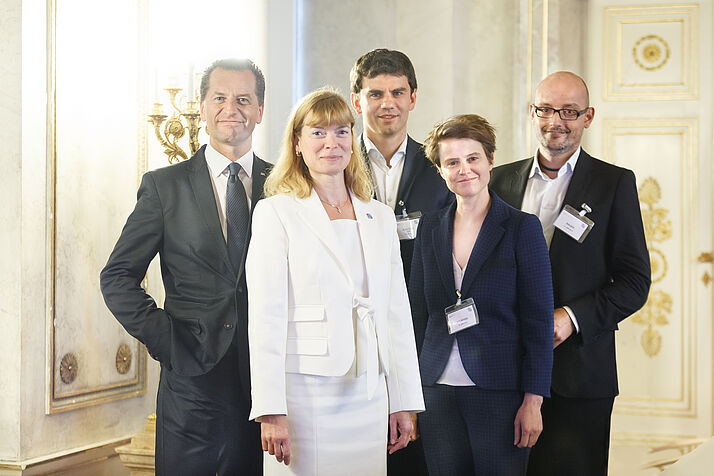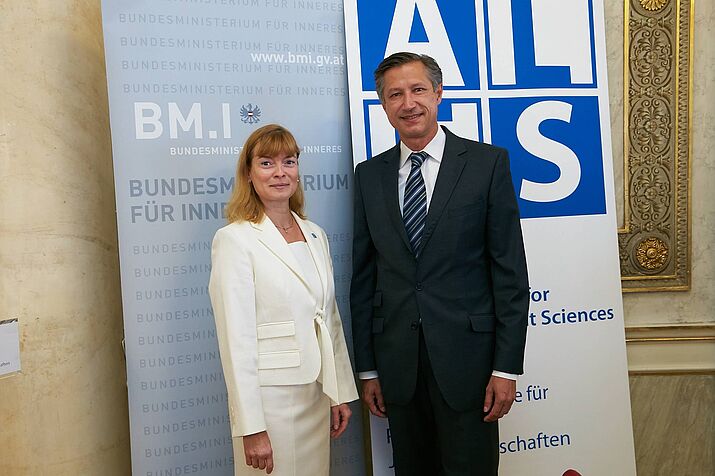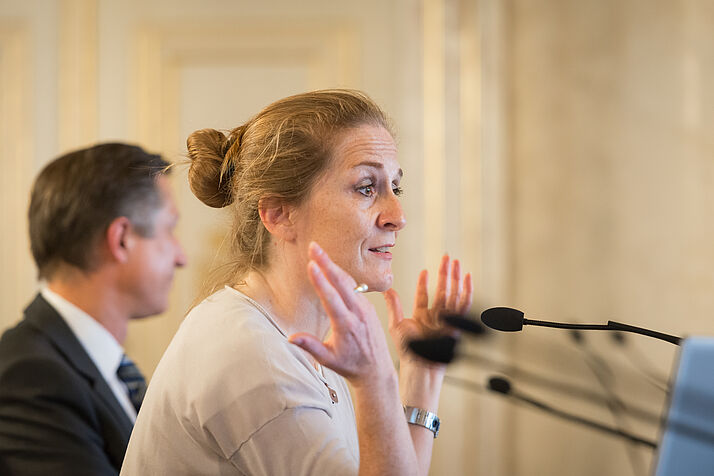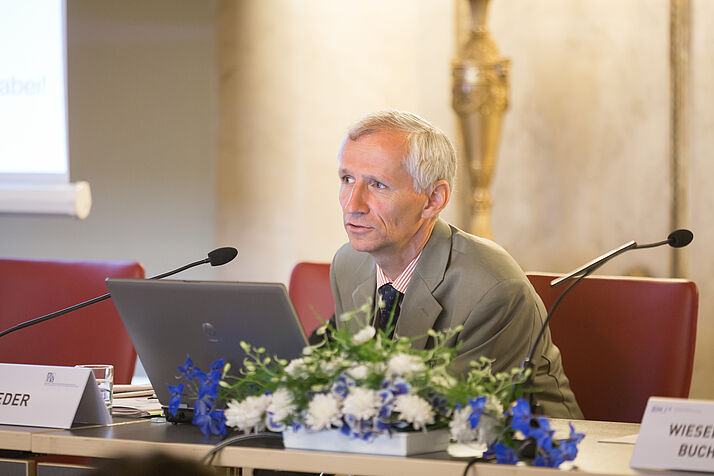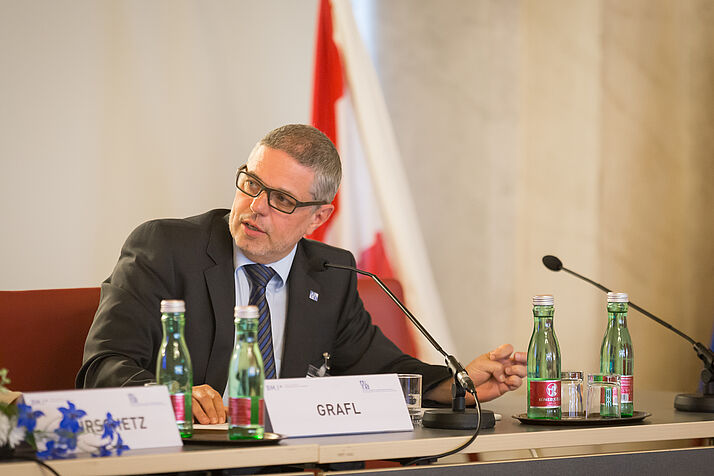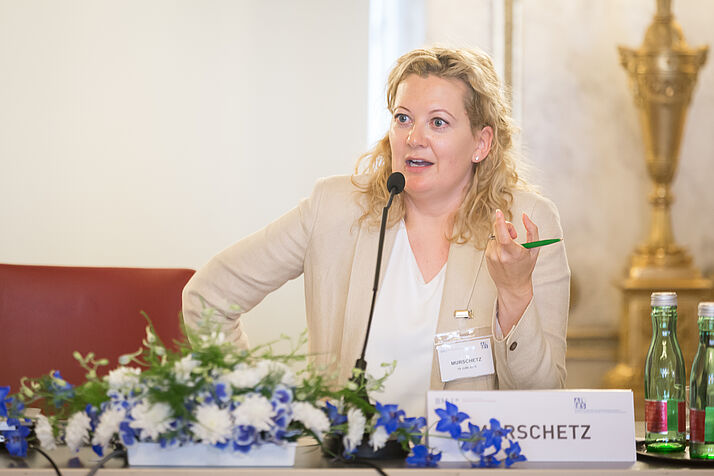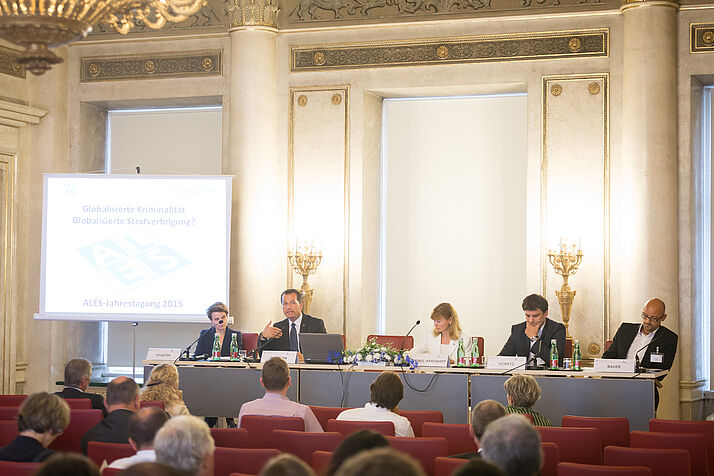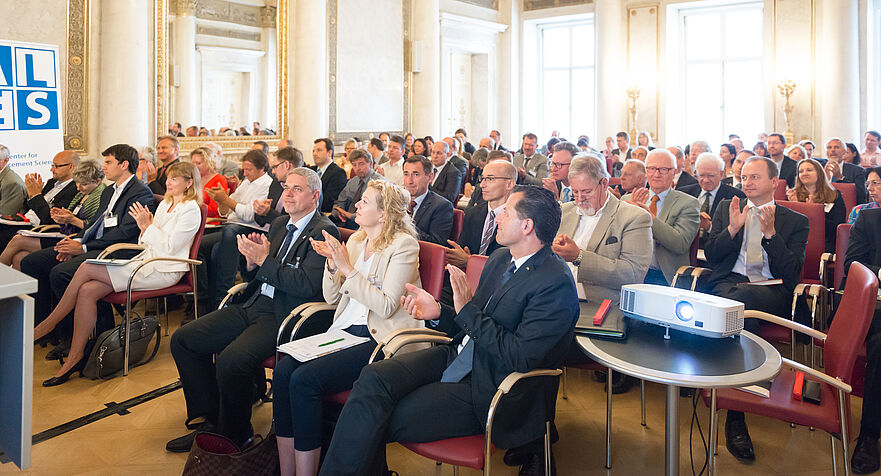Organised crime threatening cultural heritage by trafficking irreplaceable artefacts
Transnational Organised Crime program in Ferrara, Italy

Five nations meet to fight crime.
The annual UQ Law School program is a collaboration with the University of Zurich (Switzerland), University of Vienna (Austria), University of Cologne (Germany) and this year’s host, the University of Ferrara in Italy.
Students and staff from the participating universities have travelled to Ferrara to join their counterparts, leading experts and scholars in exploring the origins and movement of artefacts and antiquities, as well as the patterns and people involved in this crime type.
They are also examining the laundering and confiscation of proceeds, international and national legal frameworks, restitution and what more should be done to suppress such trafficking.
Students from the 5 universities will present their initial findings from 10-14 February with research projects to be completed in May 2025.
In 2025–2026 the program will examine the topic „organised criminal groups: members, models, and myths“. The main teaching days will be hosted by the University of Cologne.
Women for/in Justice am 11. März 2024
On 11th March 2024 the United Nations Office on Drugs and Crime (UNODC) hosted the 3rd annual “Women in Justice/for Justice” event to celebrate the International Day of Women Judges.
Dr. Alma Zadić, LL.M., Minister of Justice of Austria, and Ghada Waly, Director General of UNOV and Executive Director of UNODC, opened the event with keynote speeches on the importance of women in justice for a more resilient society. This was followed by a discussion with international experts on the topic of “Inclusive justice = resilient justice”.
The panel discussion was moderated by Assoc. Prof. Josephine Jarpa Dawuni, Howard University/Washington D.C. Important questions as “How can we build a more inclusive justice sector with and for future generations?” were discussed by Maja Popovic, Minister of Justice of Serbia, Amparo M. Cabotaje-Teng, Presiding Justice of Sandiganbayan (Philippines), Peter Jamadar, Judge (i.r.) of the Caribbean Court of Justice and Chairman of the Caribbean Association of Judicial Officers (Trinidad Tobago), Vanessa Ruiz, Chief Judge of the Court of Appeals of the District of Columbia (USA) and Anwar Alqadeeri, Head of International Cooperation & Agreements, International Cooperation Department, Anti-Corruption Authority (Kuwait).
To inspire the next generation of women to start their career in the justice system, the UNODC invited students to the event. Altindas Gamze, Caroline Hauer and Tabea-Hannah Rabitsch took this opportunity and accompanied Dr. Lisa Rösler, Mag. Hannah Gollegger and Lukas Orlik to the event taking place in the UNO City.
Below are the students' impressions (translated from german):
„It's easy to say, ‘the time to do something is now’. So, it was all the better to see that this is not just an empty phrase for the UNODC's Women in/for Justice initiative, but that the problems are really being tackled - across national and gender borders and any cultural differences. “
Caroline Hauer
„For me the topic of gender equality in the justice system was examined from a completely different angle and it was particularly exciting to see what great changes can be achieved through a high level of resilience, strong social cohesion, and mutual support. “
Gamze Altindas
„The Women in/for Justice event really inspired me and showed me that nothing is impossible, even if it is supposedly a rocky road. I think it is very important that there are events like in order to continue working towards (at least) equality between women and men. All in all, it was a very inspiring event, and I am very grateful for the opportunity to take part in the event. “
Tabea-Hannah Rabitsch
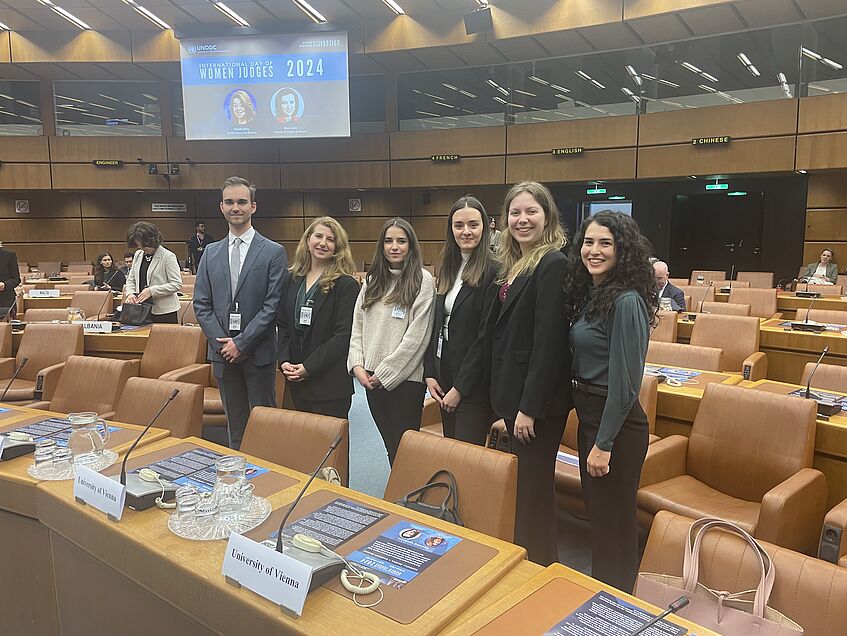
U:Vie law students examine cybercrime in international classroom
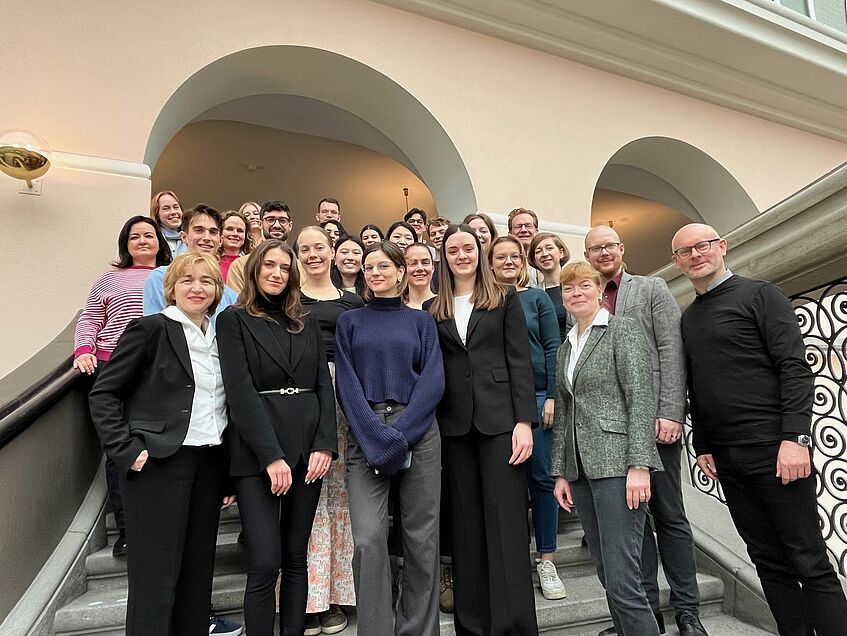
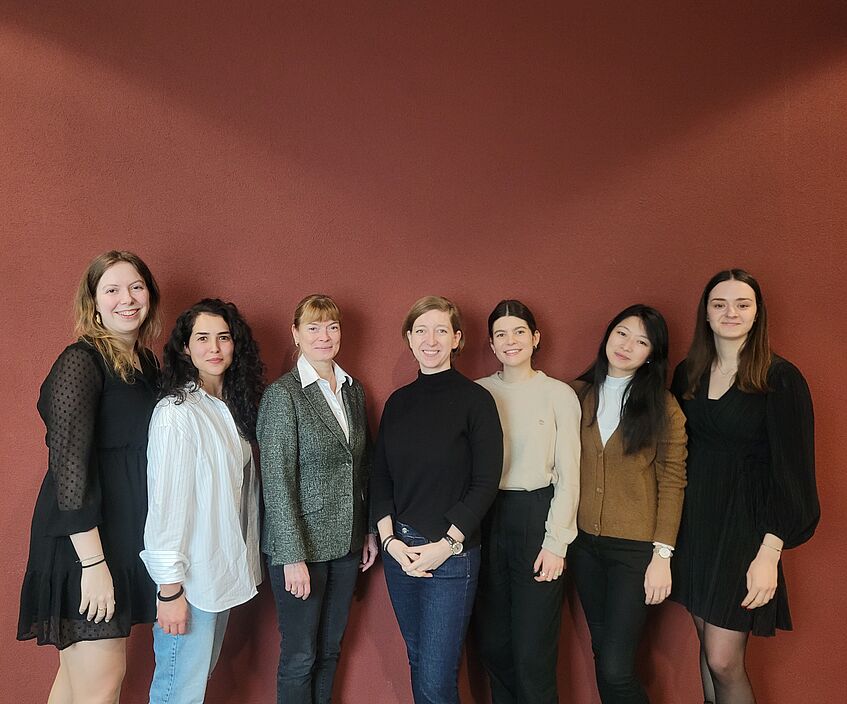
Team U:Vie: left to right - Caroline Hauer, Gamze Altindas, Susanne Reindl-Krauskopf, Monika Stempkowski, Emily Stohl, Lisa Hou, Tabea Rabitsch.
Five students of the University of Vienna are participating in an international course on cybercrime in Zurich, Switzerland. Led by University of Vienna Law professor Susanne Reindl-Kraus and Honorary Professor Andreas Schloenhardt, the course is part of the flagship Transnational Organised Crime program offered by the University of Vienna in conjunction with the Universities of Zurich, Queensland, Cologne, and Ferrara. The course enables students to research the many facets of organised crime and study the laws and practical measures to fight it. With the involvement of international partners and presentations by experts and officials, students gain unique insight into global investigation techniques as well as international criminal law frameworks.
University of Vienna student Gamze Altindas says “my project on special online investigation techniques has been eye-opening. This is a great experience to present my research to an international audience and get feedback from leading experts from top universities.” University of Queensland law student Helena Hagan adds: “this is a great way to learn with students from other countries and my research project on ransomware attacks allows me to combine my law degree with my interest in IT”.
The joint Transnational Organised Crime program is offered annually since 2018. Previous courses have focussed on wildlife trafficking, organised crime and illegal gambling, decriminalisation of drugs, the illicit firearms trade, and the challenges posed by organised crime to courts and prisons. In 2023–24, the focus is on transnational organised cybercrime.
Andreas Schloenhardt explains that “this includes specific crime types, the means and methods of online and computer-based offending, the involvement of organised criminal groups, international frameworks and national laws, as well law enforcement methods, prosecution, and prevention of cybercrime.”
Susanne Reindl-Krauskopf, adds: “This course offers a great opportunity for our students to do research in an international context and, through special training, equips them with advanced research and presentation skills. Students in this course gain a good understanding of the criminology, policies, and laws relating to cybercrime, liaise with key stakeholders, and present their research findings to an academic audience.”
In 2024–2025, the joint Transnational Organised Crime course will focus on trafficking in cultural artefacts and antiquities and will be hosted by the University of Ferrara in Italy.
Report from the University of Queensland
Organised crime, criminal procedure, and prisons: Vienna Law students work with international partners to stop criminal organisations from obstructing criminal justice
This week, UQ’s School of Law is hosting the ‘Transnational Organised Crime’ program, an annual research and learning initiative offered jointly with the University of Vienna, Austria, and the University of Zurich, Switzerland.In this program, students work alongside academic experts and engage with national authorities and international organisations to explore the threats posed by organised crime and develop solutions to counter them. This year, the University of Cologne, Germany, and the University of Ferrara, Italy, joined the program and add their expertise to tackle a problem that can threaten lives, liberty, and prosperity and, especially when couple with corruption, can undermine national security and the rule of law.
In 2022-2023, the focus of the program is on the challenges in prosecuting, sentencing and detaining members of criminal organisations. Students explore a range of topics relating to the international criminal justice cooperation and criminal proceedings involving organised crime, the punishment, especially imprisonment, of members or organised criminal groups, and the existence, modi operandi, and recruitment of these groups in prisons.
The Transnational Organised Crime program, convened by UVie Criminal Law Professor Susanne Reindl-Krauskopf (UQ honorary professor), UQ Criminal Law Professor Andreas Schloenhardt (UVie honorary professor) and UVie Criminology Researcher Monika Stempkowski, started in 2018 as a forum to bring together international students and experts to engage in research-based learning, foster international collaboration, equip students with advanced research, presentation, and writing skills, and produce research outcomes that can have a real impact on policy change and law reform. Previous courses focussing on wildlife trafficking, illegal gambling and organised crime, firearms trafficking, and the decriminalisation of narcotic drugs produced edited books that are widely used by other researchers and experts.
https://stories.uq.edu.au/news/2023/from-the-godfather-to-bikie-gangs/index.html
https://www.unife.it/it/notizie/2023/vita-universitaria/transnational-organised-crime-program
Seminar „Transnational Organised Crime, Trafficking in Persons and Smuggling of Migrants in International Law and Domestic Practice“
From the 24th until the 29th of September 2017 seven law students from the University of Vienna together with students from University of Queensland’s TC Beirne School of Law took part in the seminar „Transnational Organised Crime, Trafficking in Persons and Smuggling of Migrants in International Law and Domestic Practice“ at the University of Queensland in Brisbane, Australia. The seminar was organised in corporation between the University of Vienna and the University of Queensland under the supervision of Prof. Susanne Reindl-Krauskopf and Prof. Andreas Schloenhardt.
During the seminar the students tackled criminological aspects as well as legal instruments concerning topics such as trafficking in persons, smuggling of migrants, border security, immigration, prostitution and forced marriage on the national and international level. Guest lecturers HE Ambassador Dr. Bernhard Zimburg and Prof. Liz Campbell from the University of Durham provided the students with further insight concerning the issues of trafficking in arms and trafficking in people.
The corporation between the Austrian and the Australian students was, again, a worthwhile experience for both sides. On the first day of the seminar Prof. Susanne Reindl-Krauskopf’s and Prof. Andreas Schloenhardt’s strive towards a deeper corporation between the University of Vienna and the University of Queensland in the field of criminal law was honored with an official reception. Apart from students of the two universities HE Ambassador Dr. Bernhard Zimburg and TC Beirne School of Law’s Dean Prof. Sarah Derrington attended the celebration.
The seminar is going to be continued in Vienna in 2018 with Australian students coming to Austria.
ALES-Team at the Organised Crime & Corruption Forum at the TC Beirne School of Law in Brisbane, Australia
From the 18th until the 21st of September 2017 the University of Queensland's TC Beirne School of Law held the "Organised Crime and Corruption Forum" together with the Australian Institute of Business and Economics in Brisbane, Australia. The Forum lasted for four days and tackled topics such as "Criminalising Migrant Smuggling; Promoting Safe Migration", "The Smart Home as a Safer Space", "Anti-Corruption in the Company" and "Sports Corruption: Transnational Perspectives".
On the first day Susanne Reindl-Krauskopf (ALES-Manager, Professor at the University of Vienna and Honorary Professor at the University of Queensland), participated in a panel discussion that dealt with the issue of Migrant Smuggling. Andreas Schloenhardt (Professor of Criminal Law at the University of Queensland and Professorial Research Fellow at the University of Vienna) hosted the panel. Thomas Albrecht (UNHCR Regional Representative in Canberra), Madeline Gleeson (Kaldor Centre for International Refugee Law, University of New South Wales in Sydney), Federica La Chioma (Prosecutor in Palermo, Italy) and Emil Stojanovski (Director of the Transnational Crime Section in the Australian Ministry for Foreign Affairs) also participated in the discussion. Susanne Reindl-Krauskopf explored the questions of why criminal provisions exist in this field, which legal interests are protected by the existing criminal provisions, and if situations can arise in which criminalization seems to be out of place. The participants discussed the international legal framework, protection of refugees, humanitarian standards, and policy plans in relation to criminal sanctions, border control and other shielding mechanisms.
For the central theses set forth by Thomas Albrecht and Susanne Reindl-Krauskopf in the related interview with George Roberts for ABC Radio see:
The second day of the conference focused on the "Smart Home" in relation to domestic violence and the use of new technology. Farsam Salimi (ALES-Project Manager and Assistant Professor at the University of Vienna), Rebecca Shearman (Domestic Violence Action Centre) and Mark Burdon (Senior Lecturer at the University of Queensland) shed light on the profiles of perpetrators, modi operandi in relation to social media, typical instances of victimization, the growing responsibility of developers of new technologies as well as possible changes in the concepts of privacy in the "Smart Home". ABC Radio journalist Antony Funnel hosted the discussion. Farsam Salimi presented the new criminal provision of "Cyberbullying" (§ 107c Austrian Criminal Code StGB) as a possible inspiration for a new Australian criminal provision. This was of great interest to the audience.
For radio coverage of the session as well remarks by Farsam Salimi see:
http://www.abc.net.au/radionational/programs/futuretense/the-smart-home-as-a-safer-space/8895846
In the ensuing "Design Thinking Session" the participants of the conference were split up into eight teams consisting of students, practitioners and academics of various backgrounds. In a guided but open discussion the teams tried to come up with novel solutions that go beyond current Australian law and are feasible within a 5-year timeframe. After the solutions were presented a jury consisting of Hannah Driscoll (Suncorp), Rebecca Shearman and James Semit (The Legal Forecast/King & Wood Mallesons) decided on the best idea pitch as well as the best idea. The best pitch was awarded to the team that consisted of, amongst others, Jakob Tschachler (ALES-Research Associate). A team consisting of two law students, an alumni of technical studies, a social worker as well as ALES-Manager Susanne Reindl-Krauskopf was awarded for coming up with the best idea. The idea set forth was that a code of ethics should be created in cooperation with the IT-industry, as well as legislators, that would not only guarantee the safety of appliances but also safe handling of private data. It would also provide guidance on the swift reaction of providers in instances of domestic violence.
"Corruption: Concepts - Controls - Concerns"
On 28 October 2016, Dr Susanne Reindl-Krauskopf, Professor of Criminal Law, Criminal Procedure and Criminology at the University of Vienna and Honorary Professor at The University of Queensland presented a seminar on ‘Corruption: Concepts, Control, Concerns’ at the TC Beirne School of Law.
In her presentation, Professor Reindl-Krauskopf explored the evolution of international law relating to corruption, the enforcement and prosecutorial anti-corruption mechanisms adopted in Austria, and reflected on new challenges including private sponsoring and public-private partnerships. The seminar was also attended by Ambassador Dr Bernhard Zimburg who took up the post of Ambassador of Austria to Australia in September 2016.
Third Joint UQ-U:Vie organised crime course opens in Vienna
The third joint course on transnational organised crime of the University of Vienna and the University of Queensland opened on 26 September 2016 with a reception at the Australian Embassy in Vienna. The course brings together 15 law students from both universities who undertake research on international law, national policies, and the criminology of organised crime. The focus of this year´s course is on smuggling of migrants and trafficking in persons with students exploring topics from trafficking for the purpose of organ removal, questions of domestic jurisdiction and to the secrecy surrounding border control operations.
U:Vie´s professor of criminal law and co-coordinator of this course, Univ.-Prof. Dr. Susanne Reindl-Krauskopf, who was recently made an Honorary Professor at UQ, says that “the course enables students to conduct independent research, liaise with international organisations and national authorities, and offers a pathway to learn about employment in this area or to undertake postgraduate research in this field.” Prof. Dr. Andreas Schloenhardt, who co-convenes the course, adds that “the course offers students a unique opportunity to learn from different national approaches and compare problems and solutions in common law and civil law jurisdictions.”
The course was formally opened by Ms Gaia Puleston, First Secretary of the Australian Embassy in Vienna, Professor Heinz Faßmann, Deputy Vice Chancellor of the University of Vienna, and Dean of Law Professor Paul Oberhammer. In his opening remarks, Professor Faßmann stressed the importance of international research and student exchange. Professor Oberhammer also noted the very close cooperation between the two law schools; “the cooperation extends from undergraduate exchange to joint faculty research projects and also encompasses UQ students participating in the University of Vienna Summer School and to PhD students spending extended research visits at the partner university.”
The course is held at the department of criminal law and criminology and will last until 30 September 2016. On 28 September 2016, Colonel Gerald Tatzgern B.A.M.A (Head of the Joint Operational Office against human smuggling and trafficking in humas, Federal Ministry of the Interior) and Mr Ambassador Dr. Helmut Böck (Federal Ministry for Europe, Integration and Foreign Affairs) will deliver guest lectures. The course will be completed with a visit to the United Nations Office.
The UQ report you will find here.
Unfortunately, the detailed reports on the events are currently available only in German.

